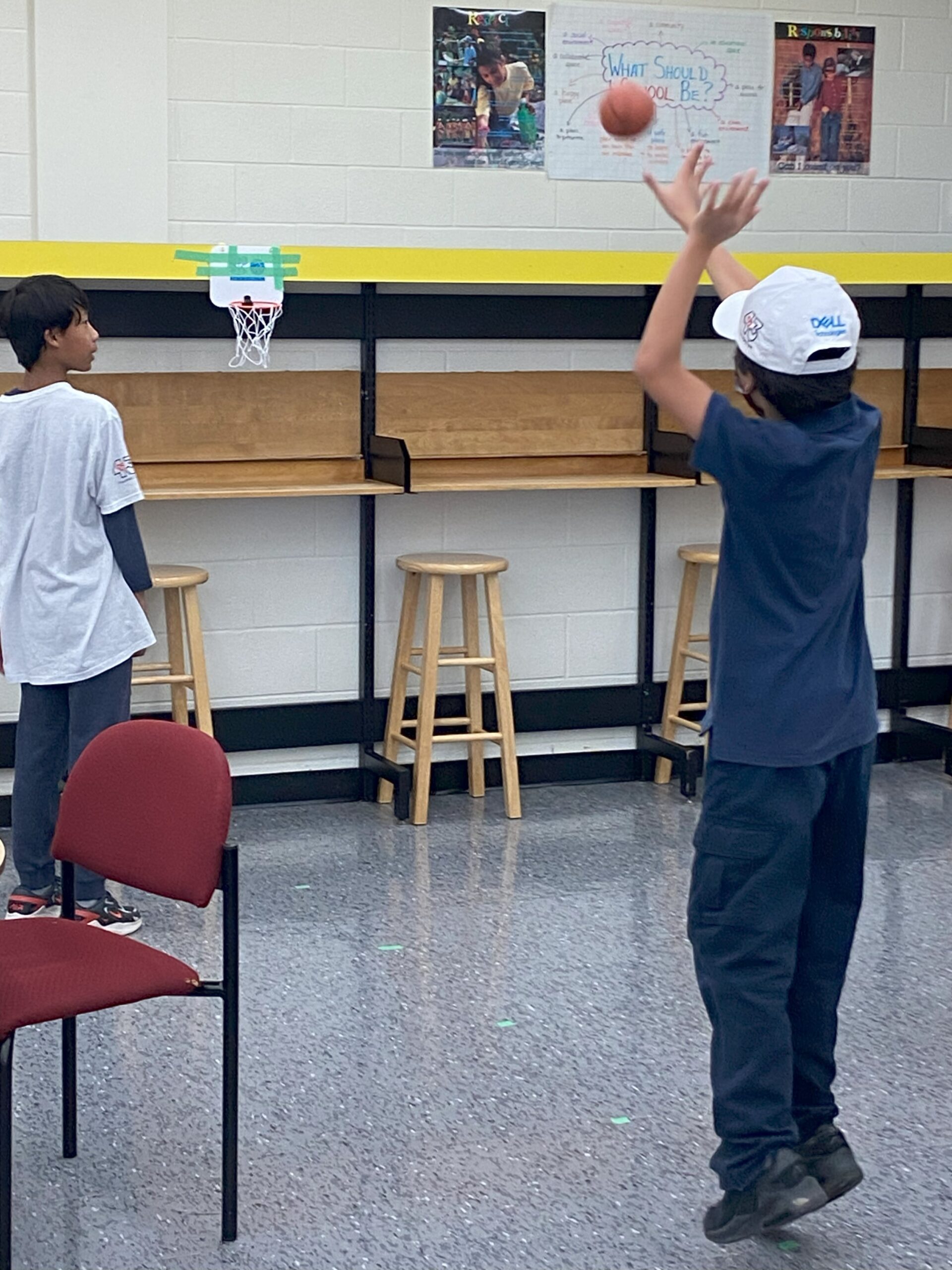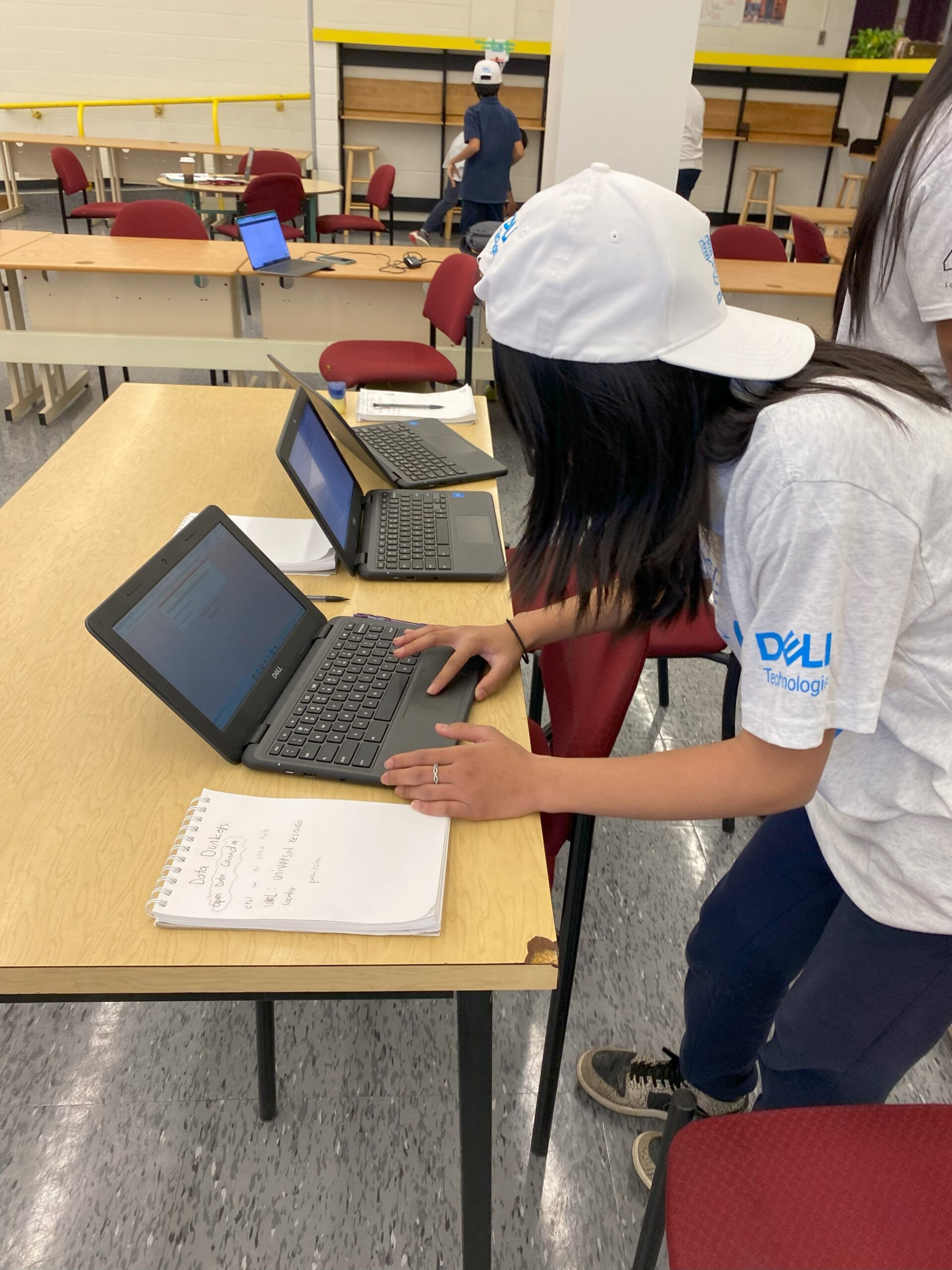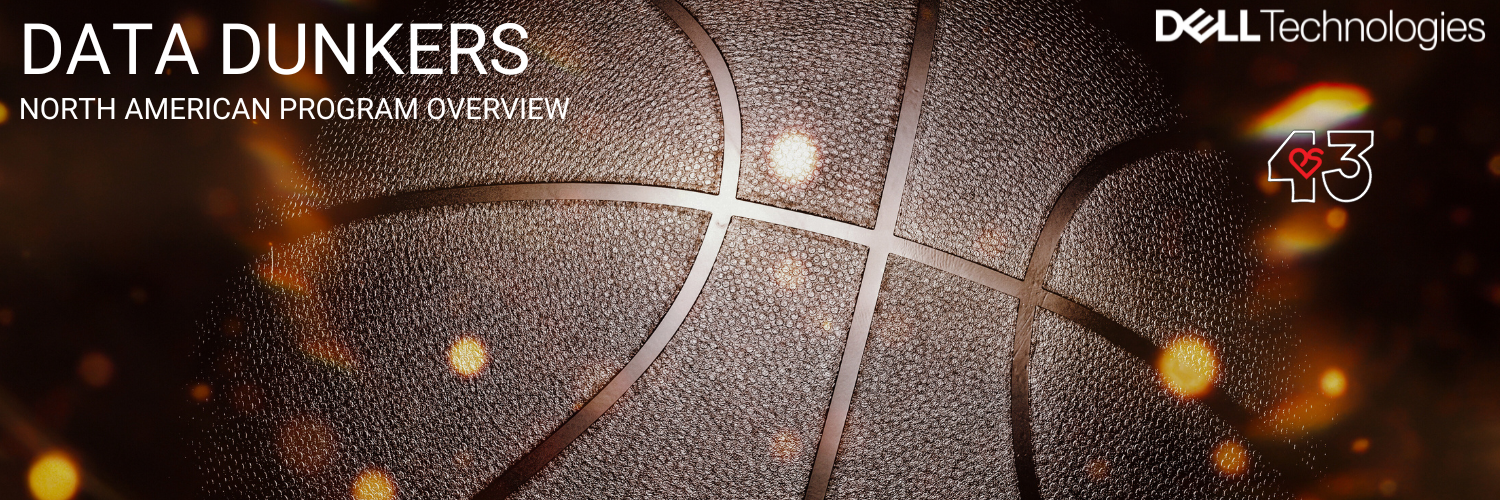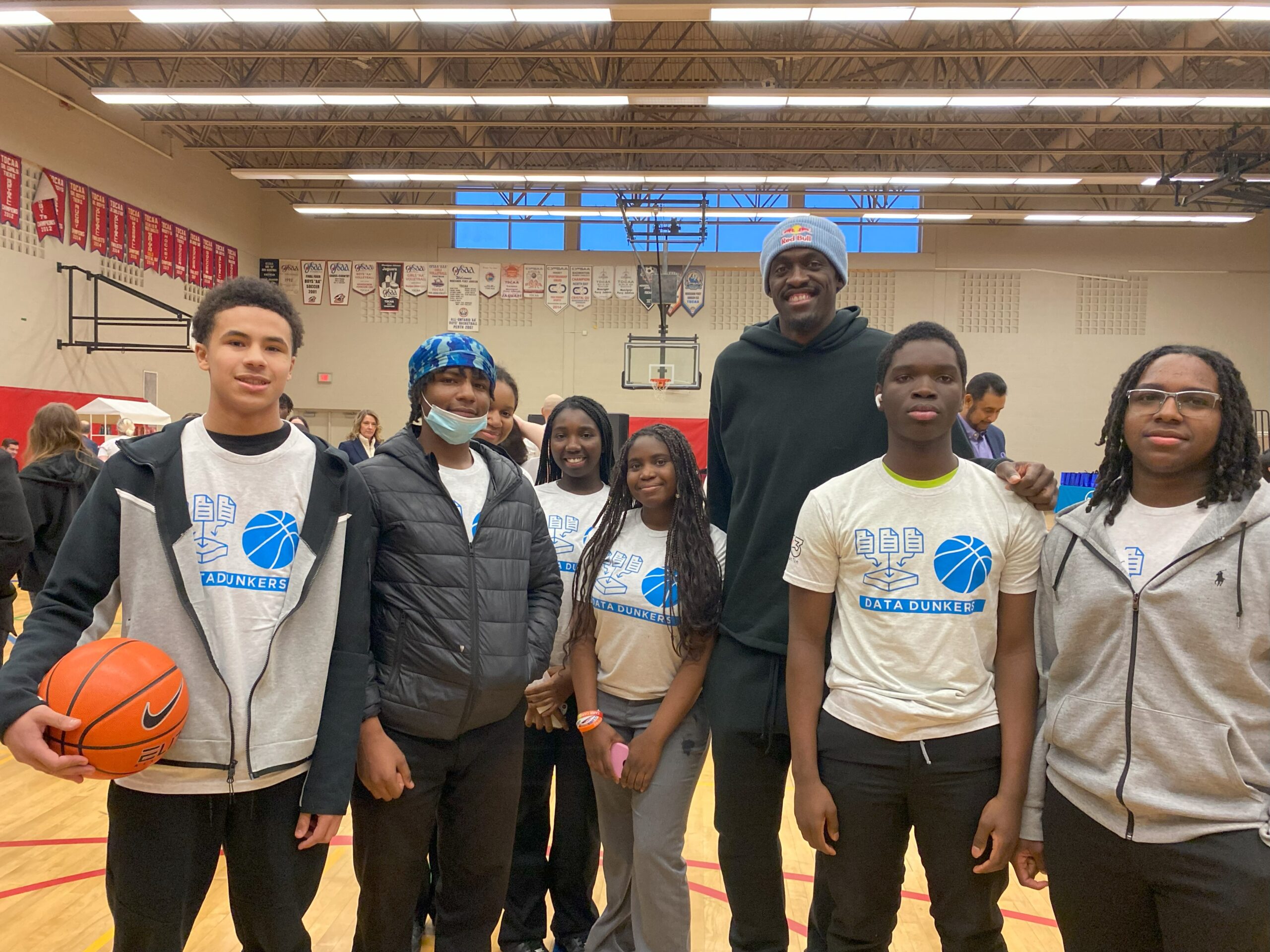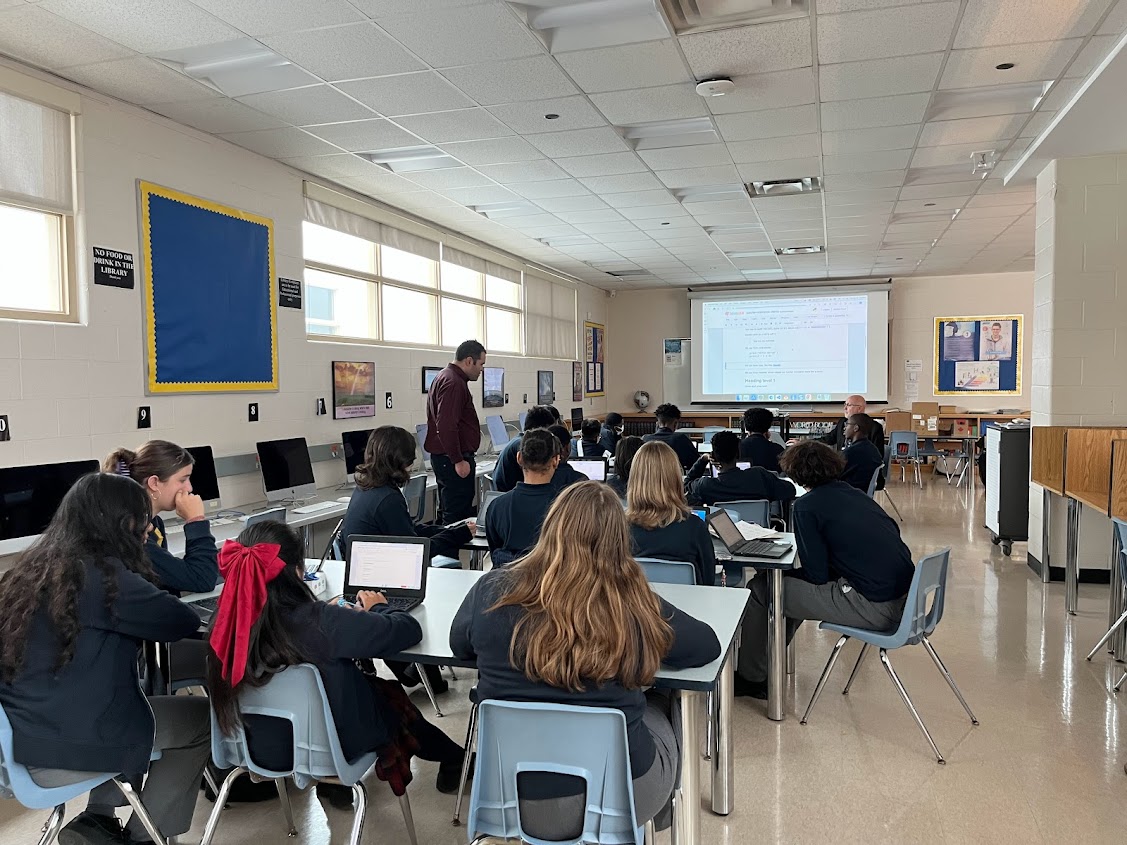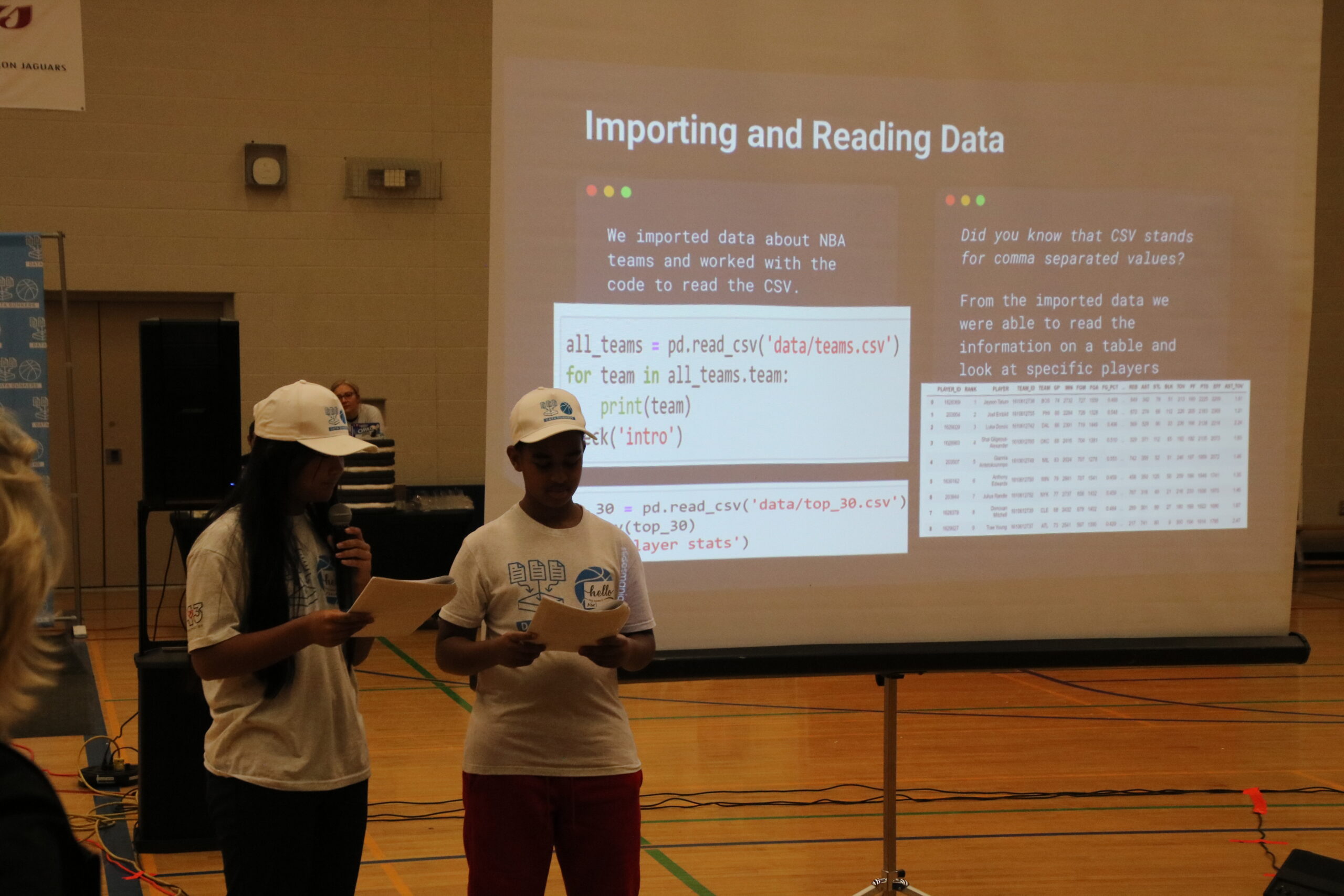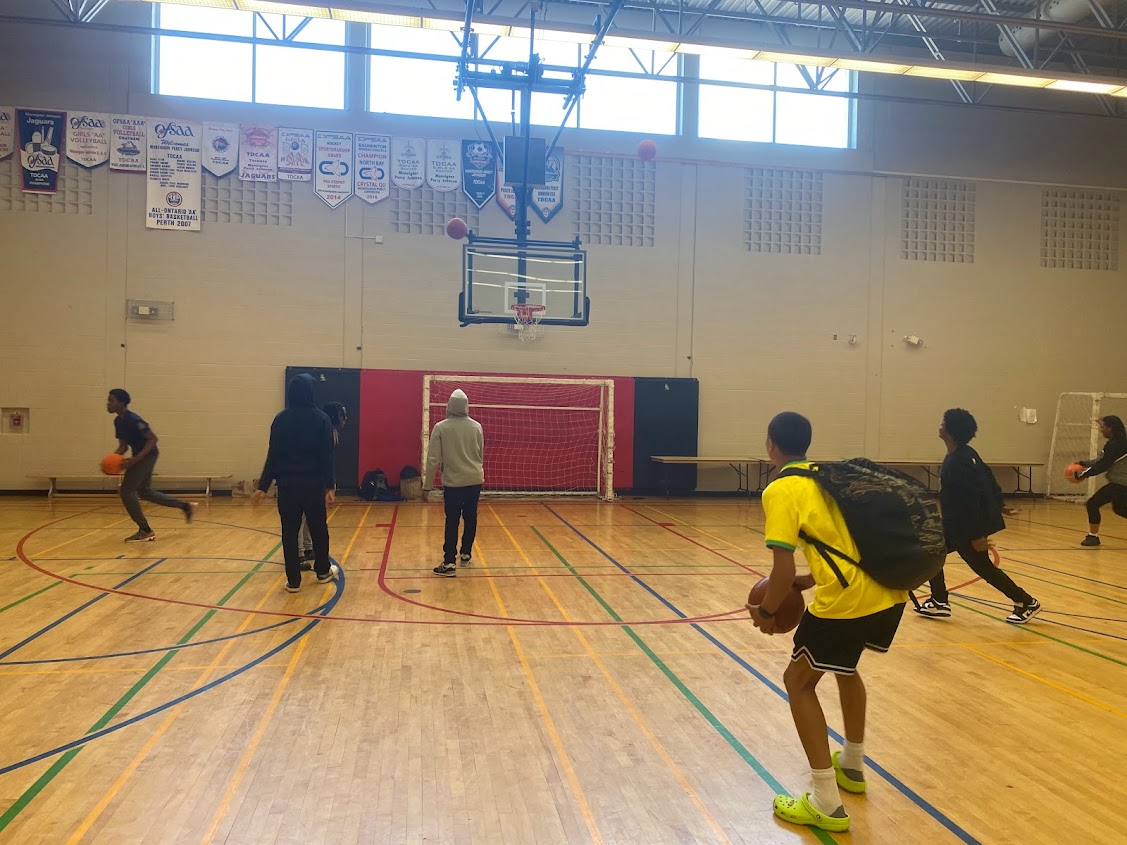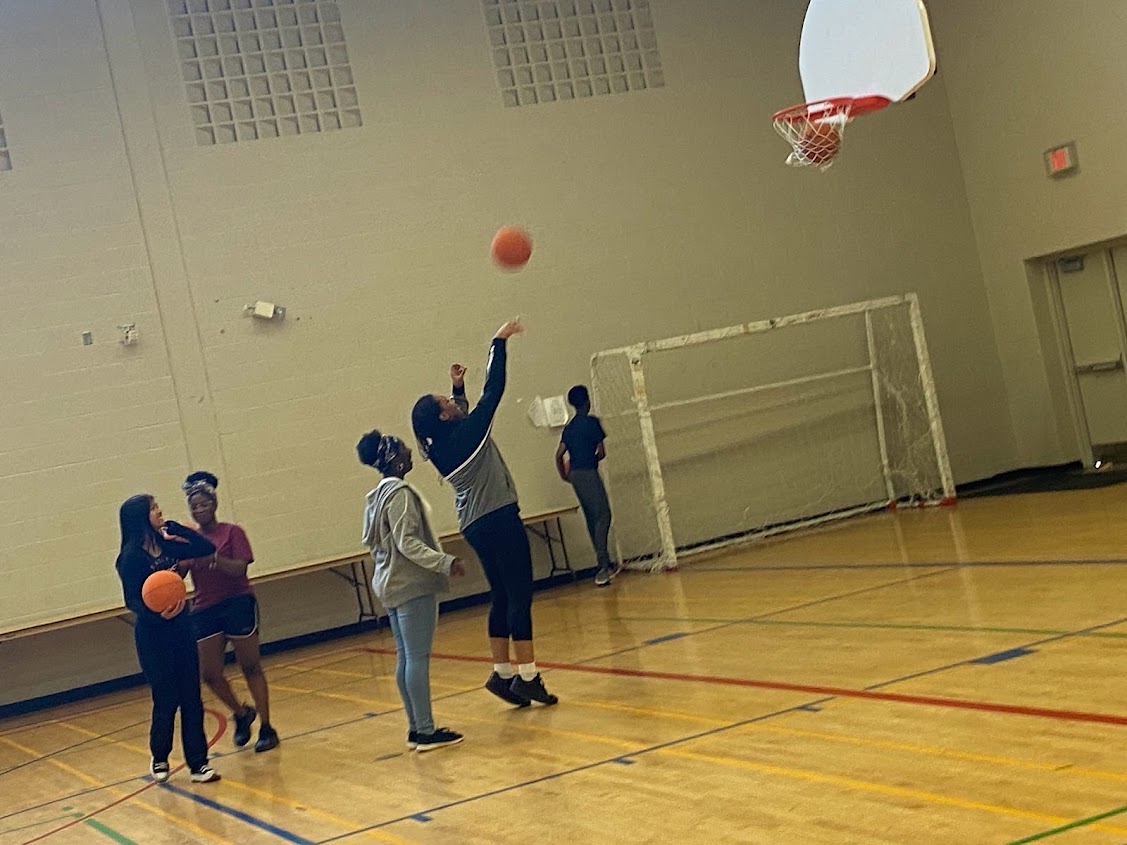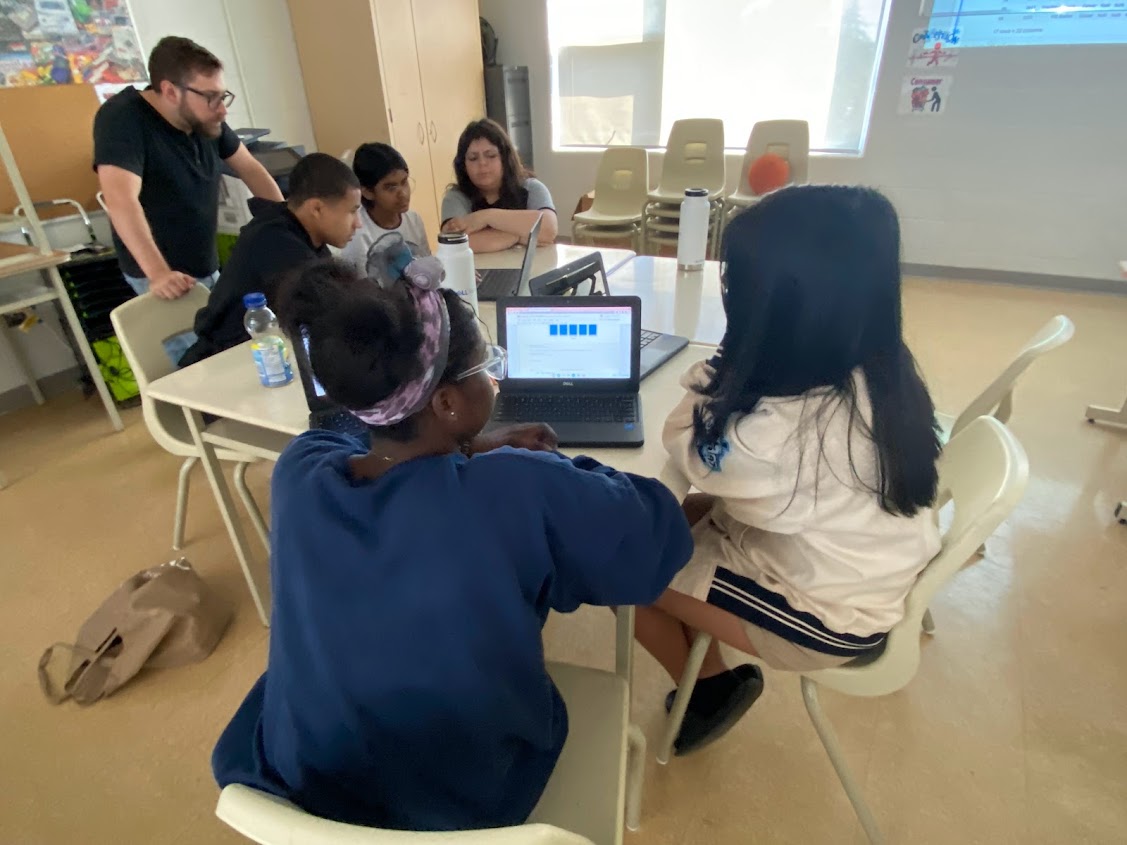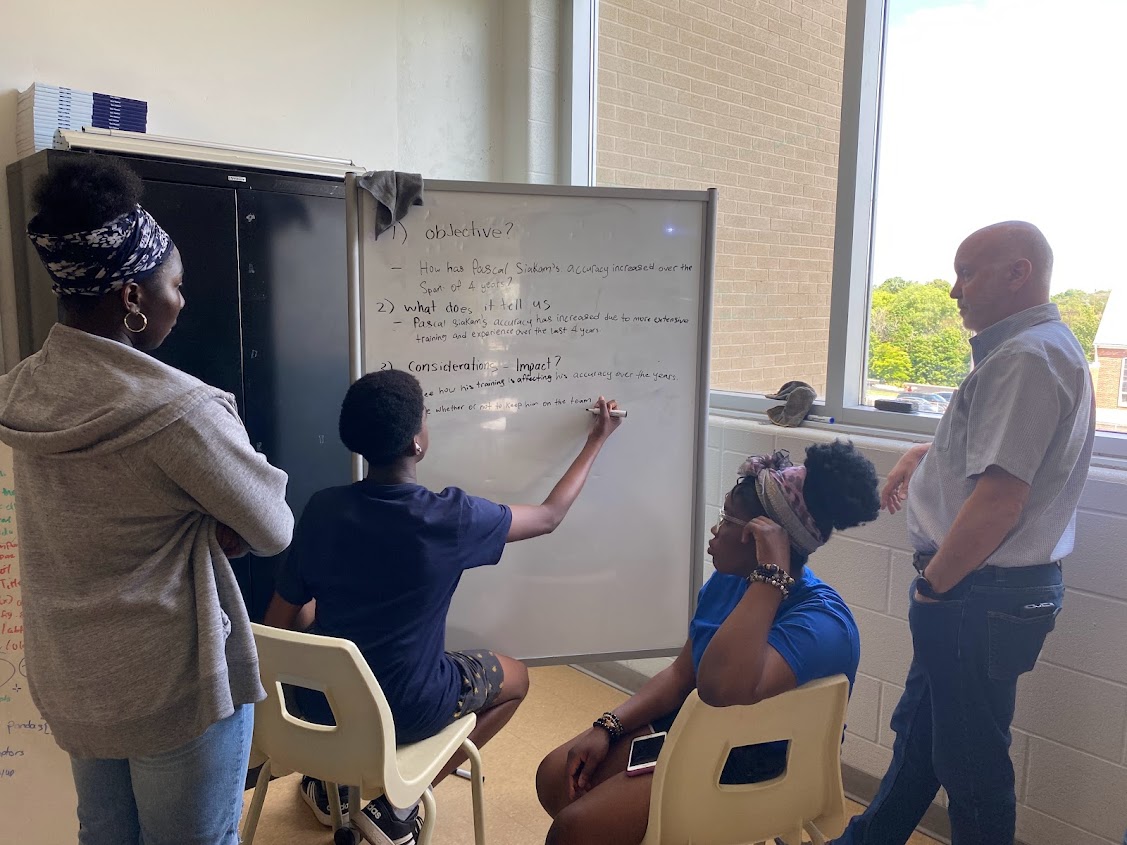|
Data Dunkers Fundamentals
The Data Dunkers Fundamentals program, lasting 6 to 9 hours, introduces students to data science fundamentals through the engaging context of basketball analytics. Utilizing Jupyter Notebooks, participants initially analyze their own basketball performance data, laying the groundwork for foundational skills in data analysis, storytelling, and visualization techniques. The program then transitions to a scaffolded, inquiry-based exploration of NBA/WNBA statistics. This methodical approach encourages students to hypothesize reasons for performance differences in the larger dataset and formulate data-driven recommendations for personal skill improvement. Ideal for students in grades 5-12, this format offers a hands-on experience that seamlessly blends the basics of data science with the universal appeal of basketball.
| Data Dunkers Full Court Press
The Data Dunkers Full Court Press program, designed for a commitment of 10 to 20 hours, is aimed at students in grades 5-12. This standalone offering encompasses everything introduced in the Fundamentals program and extends beyond, providing a more comprehensive dive into data science through basketball analytics. By retaining the core elements of data analysis, storytelling, and visualization, this format enriches the learning experience with added depth. Beginning with the analysis of class performance data—akin to the Fundamentals—the Full Court Press leverages project-based learning to open doors to expansive research opportunities. Students are empowered to undertake individual or group projects, exploring basketball analytics and beyond.
The adaptability of the Full Court Press is a hallmark of its design, allowing educators the freedom to tailor the depth of data science exploration to fit their classroom's unique needs and available time. Whether by tackling more complex questions or integrating diverse datasets—ranging from health and nutrition to career data—educators can customize the program to enhance student engagement and outcomes. This approach not only solidifies foundational learning but also invites in-depth analysis, fostering critical thinking, problem-solving skills, and a profound appreciation for data science within the captivating context of basketball and beyond.
|
